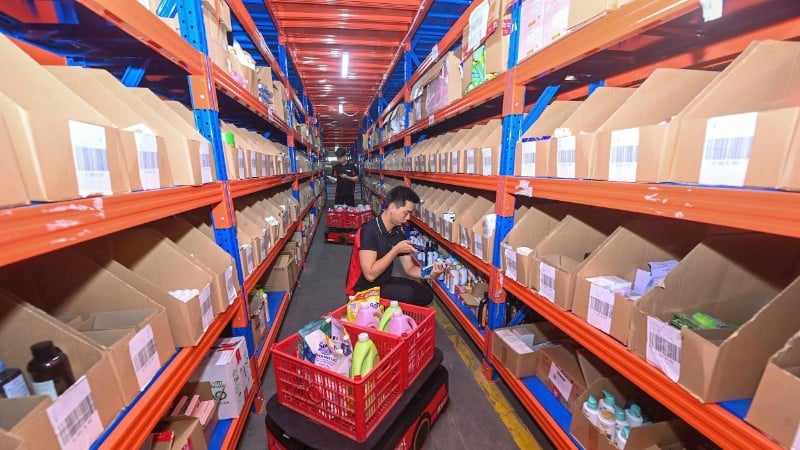
For Vietnam, building national capacity in AI is not only a matter of technology and infrastructure, but first of all, preparing a human resource foundation, starting with bringing AI into teaching and learning in educational and training institutions.
Lesson 1: AI ecosystem with Vietnamese identity
Vietnam is entering a phase of accelerating AI development. However, for AI to truly become a national capability, Vietnam needs to overcome gaps in human resources, data and computing infrastructure, and find its own path that suits its conditions and identity.
Aspiration to master technology
From his practical experience in Silicon Valley (USA), Mr. Tran Viet Hung, founder of Got It - an AI start-up for the education sector in the US, shared that AI is changing the way the global technology sector operates. In Silicon Valley, investors will now not invest in any start-up if AI is not the main factor. AI has become a "digital employee" for everyone and the first thing to do is to think about what AI can do instead of humans. A new trend is also forming, that is, billion-dollar companies may have only one human employee, the rest are AI.
Director of the Department of Startups and Technology Enterprises ( Ministry of Science and Technology ) Pham Hong Quat also stated that AI will create a global economic impact of up to 5,000 billion USD by 2030 and Vietnam alone can benefit up to 130 billion USD by 2040 thanks to AI increasing productivity, automation and decision support. Faced with such a huge opportunity, Vietnam is ready to enter the development stage as an AI country in the future by forming an AI ecosystem with the participation of research institutes, universities, the state sector, large enterprises, startups, investment funds and international partners. AI is present in every industry, every field, from manufacturing, healthcare, education to finance, agriculture or logistics.
Resolution 57-NQ/TW dated December 22, 2024 of the Politburo on breakthroughs in science, technology, innovation and national digital transformation identifies AI as one of the key areas for economic development.
In recent times, the world's leading technology corporations have made important contributions to the formation of Vietnam's AI ecosystem.
Dr. Vo Xuan Hoai, Deputy Director of the National Innovation Center, said that Meta Group supports Vietnam in accessing the LLaMA open source platform, from which domestic research institutes, universities and enterprises customize AI models suitable for the Vietnamese language and domestic data characteristics. NVIDIA builds a research and development (R&D) center in Vietnam, providing strong computing infrastructure for AI research and training. Qualcomm develops the third largest AI R&D center in the world located in Vietnam, contributing to positioning our country as a new destination for the global AI technology industry. Vietnamese corporations and enterprises such as Viettel, FPT, CMC, VNPT, MISA have proactively invested heavily in AI, deploying virtual assistants, data analysis platforms, digital healthcare, finance and smart logistics. The AI start-up force is also developing vigorously, with a lot of potential.
Major universities such as Hanoi University of Science and Technology, Hanoi National University, Ho Chi Minh City National University, Danang University, FPT University have established institutes, centers or majors on AI.
Along with that, the National Innovation Center and many business incubators are actively connecting research with the market, contributing to expanding the AI human resource and product ecosystem. State policies are also creating a strong driving force. Resolution 57-NQ/TW dated December 22, 2024 of the Politburo on breakthroughs in science, technology, innovation and national digital transformation identifies AI as one of the key areas for economic development.
For the first time, in Decree 182/2024/ND-CP of the Government on the establishment, management and use of the Investment Support Fund, businesses investing in AI are supported with up to 50% of the initial investment costs. The Ministry of Science and Technology is updating the National Strategy on AI Research, Development and Application and preparing to submit the Draft AI Law. These steps show that Vietnam is laying the foundation for the goal of AI becoming part of the national capacity in the future.
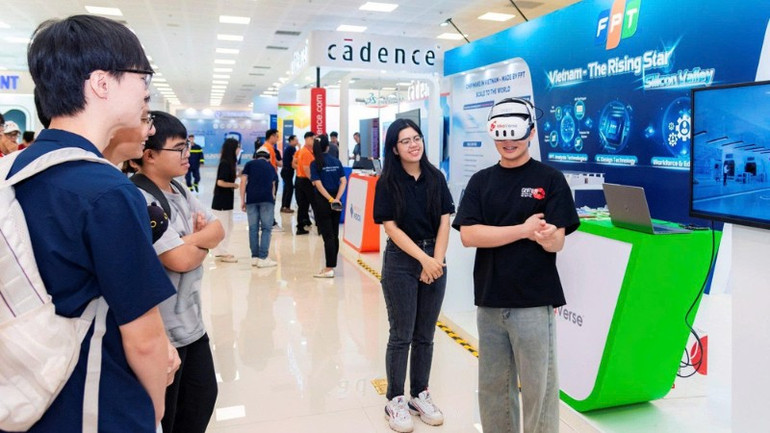
Director of the Information Technology Industry Department (Ministry of Science and Technology) Nguyen Khac Lich said that Vietnam has been affirming its increasingly high position on the world AI map, with the Global AI Readiness Index in 2024 being 59/193 countries, investment capital in AI enterprises increasing, reaching 80 million USD in 2024. The Government will increase public spending on AI, the National Technology Innovation Fund will support AI applications.
Will AI become a national capability?
Although the AI ecosystem is ready for a new leap, there are still many challenges ahead. In fact, AI applications in businesses are still limited, mostly stopping at the experimental level such as customer care chatbots or simple data analysis. Vietnam has the opportunity to join the world in the wave of artificial intelligence technology (popularized from the end of 2022), but the utilization of AI is still slow and somewhat indifferent.
Experts warn that if this trend continues, the possibility of being left behind is very high and with the current speed of development, it will be very difficult for those left behind to catch up. Only when the level of AI integration reaches 60-70% or more of a business's operations, that is, AI simultaneously participates in production, finance, administration, marketing, and customer service, will the investment efficiency be clear and productivity will truly break through.
The Ministry of Science and Technology is updating the National Strategy on AI Research, Development and Application and preparing to submit the Draft AI Law. These steps show that Vietnam is laying the foundation for the goal of AI becoming part of the national capacity in the future.
Mr. Tran Viet Hung, founder of Got It, believes that Vietnam can absolutely become a global bright spot if it implements a three-phase model. The first is to popularize AI skills and applications for all people in learning and working to both create value and generate data for the next phase, while training AI human resources. Once Vietnam has finance, data, and human resources, it can create its own AI products. This is also the time to attract global technology corporations to open R&D centers in Vietnam and train thousands of good engineers. Success in the first two phases will naturally attract global startups to Vietnam, turning the country into a vibrant AI ecosystem. And then, Vietnam's AI products will go global. All of the above activities require the direction and cooperation of agencies, departments, and sectors.
With an approach based on the open innovation ecosystem model, suitable for Vietnam's circumstances, Mr. Nguyen Truong Thang, Director of the Institute of Information Technology (Vietnam Academy of Science and Technology) said that it is necessary to develop AI on an open source platform, that is, using the "brain" shared for free by large corporations such as Meta, so that Vietnamese people can train and fine-tune it to suit the Vietnamese language and domestic data.
Sharing the same view, a representative of MISA Joint Stock Company affirmed that open source AI is the right direction to master technology, reduce costs and increase data security. The company itself has applied Meta's LLaMA platform to develop the MISA Ava digital assistant, and without open source AI, developing such a tool is almost impossible at current costs.
One of the challenges is that the Vietnamese AI ecosystem still lacks a solid human resource foundation, with the paradox that undergraduate training is increasing rapidly but there is a serious lack of graduate programs and a team of good experts. Students mostly have to study on their own, lacking computing infrastructure and data for practice, making their ability to master technology still limited. The human resource problem therefore becomes the biggest "bottleneck", opening up the need for fundamental innovation in training and learning with AI.
(To be continued)
Source: https://nhandan.vn/viet-nam-tren-duong-tro-thanh-quoc-gia-ai-post914915.html



![[Photo] General Secretary To Lam attends the opening of the 1st Government Party Congress](https://vphoto.vietnam.vn/thumb/1200x675/vietnam/resource/IMAGE/2025/10/13/1760321055249_ndo_br_cover-9284-jpg.webp)






























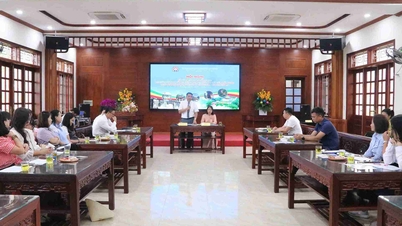














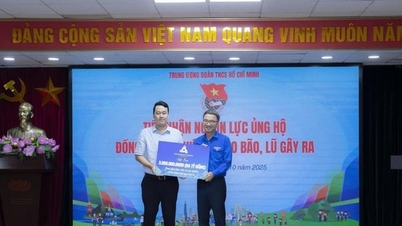

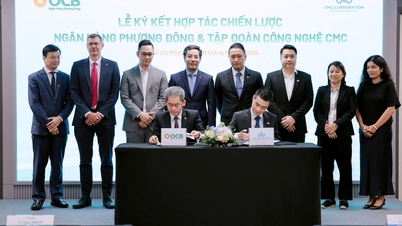



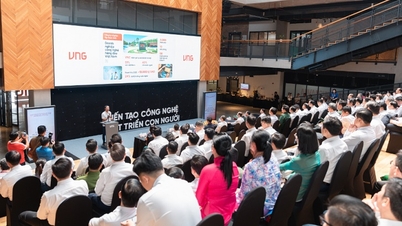


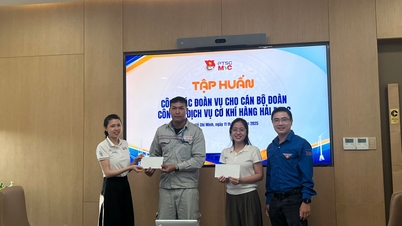






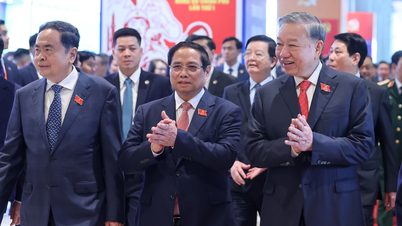
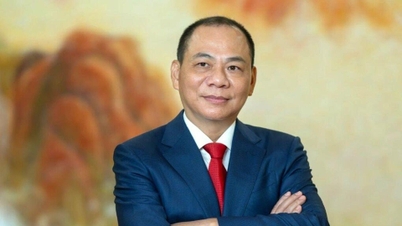
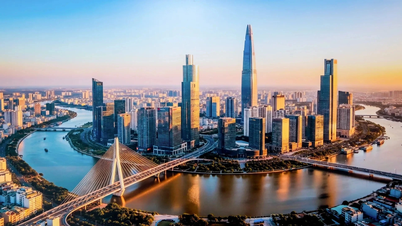

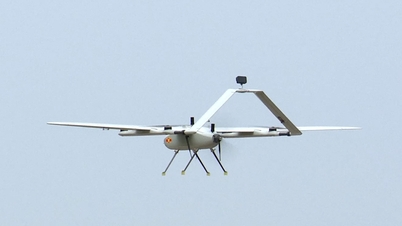

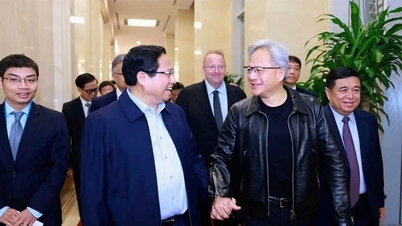
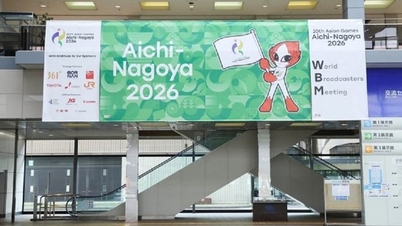




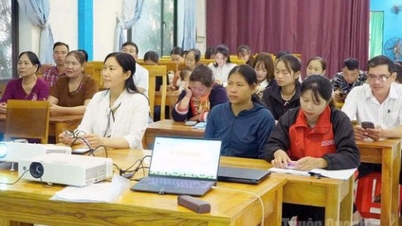

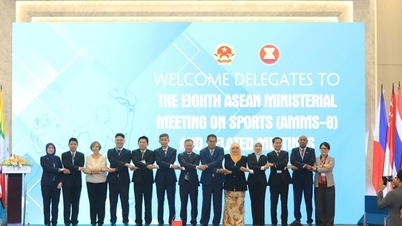
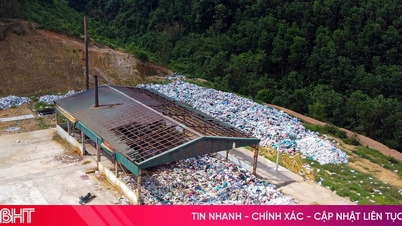



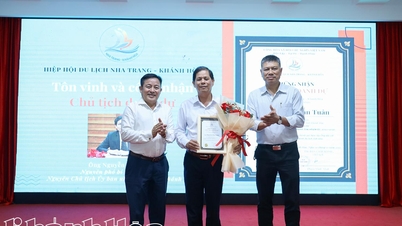


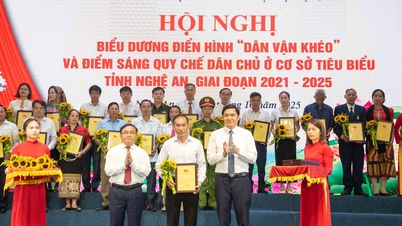
















Comment (0)